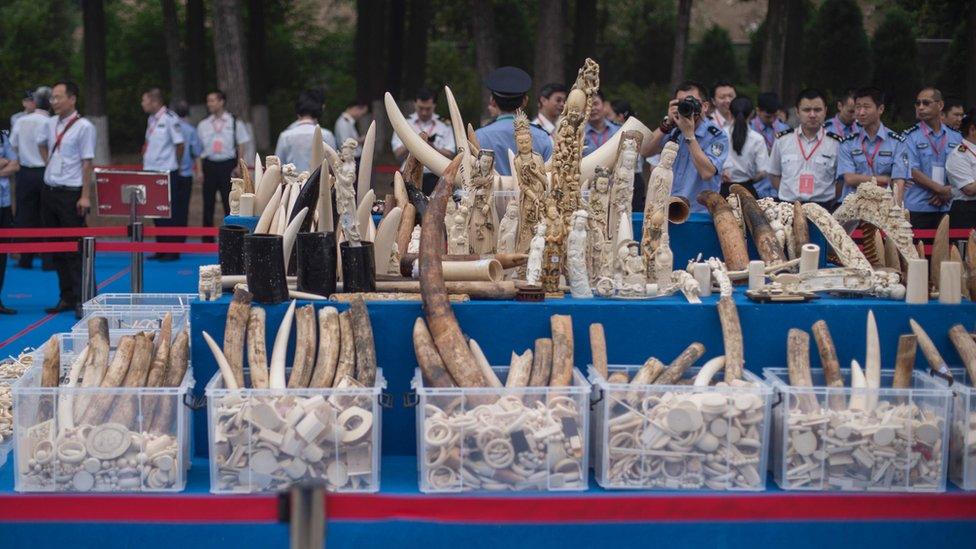China begins ivory trade ban
- Published

A collection of illegal ivory which has been seized in Beijing in China.
China has announced it will ban all trade in ivory by the end of 2017, and that begins today, March 31st.
This decision marks a huge step in the fight against poaching, with some animal conservation charities calling the decision "historic" and a "game-changer" for the future of elephants.
By the time the stores close, almost half of China's authorised ivory factories and shops will have locked their doors for good.
A team of experts from the UN Convention on International Trade in Endangered Species (Cites) will be on hand to make sure it happens.
The rest of China's legal trade will be gone by the end of the year - a total of 34 factories and 138 shops.
The UK's Prince William, has welcomed the Chinese government's decision as "an important commitment".
Why is China doing this?
China is currently the biggest buyer and seller of ivory in the world - in fact some people think around seven out of every ten pieces of ivory in the world ends up for sale there.
The decision came as part of a big convention called Cites, which took place in 2106 in South Africa.
China's State Council has said that the sale and processing of ivory will stop by 31 March - meaning that registered traders of ivory will be stopped from buying and selling it - aiming to stop the trade of ivory in China by the end of the year.
Watch Defending the Rhino: A Newsround Special
Poachers hunt animals such as rhino, elephants and tigers to sell their body parts.
Rhino horn and ivory, which is found in elephant tusks, can be illegally sold for huge amounts of money.
They're sold in different countries where they can be carved into ornaments, jewellery and even chopsticks.
Horns are worth more by the gram than diamonds and gold.
Some people buy them to show off how rich they are, and others believe they have magical healing powers and use them as medicines, but scientists say these medicines don't work.
If poaching continues at its current rate, creatures like elephants and rhino may be gone in our lifetime.
Speaking about China's decision, executive director of the Wildlife Conservation Society in Asia, Aili Kang, said: "I am very proud of my country for showing this leadership that will help ensure that elephants have a fighting chance to beat extinction."
- Published5 October 2016
- Published1 May 2016
- Published12 May 2016
- Published11 May 2016
